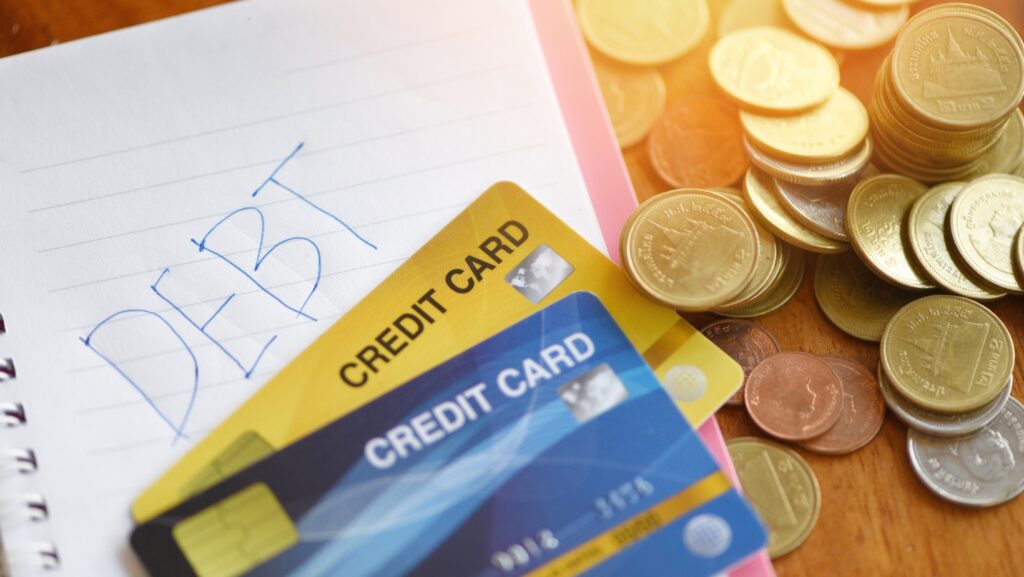Effective credit card debt management is pivotal in maintaining a sound financial standing. This blog will provide valuable insights into the best practices for managing credit card debt and highlight common mistakes to steer clear of. By familiarising yourself with the intricacies of credit cards and debt repayment, you can reclaim financial control and establish a firm foundation for a prosperous tomorrow.

Understand Credit Card Debt
It’s vital to realise that credit card debt can pile up rapidly due to the high interest rates and fees. Many individuals find themselves trapped in a cycle of debt, struggling to make minimum payments and experiencing financial stress. By proactively managing credit card debt, you can regain financial freedom and work towards achieving your financial goals.
Best Practices for Managing Credit Card Debt
1. Track and Analyse Your Spending: Understand your spending habits. Track and categorise your credit card expenses to identify areas where you can cut back and save money.
2. Create a Realistic Budget: Develop a budget that accounts for your income, necessary expenses, and debt repayment. Allocate a specific portion of your income towards credit card payments to reduce your debt systematically.
3. Pay More than the Minimum: If you are struggling with clearing the whole bill, try to pay more than the minimum amount due on your credit card statement. It will reduce the principal balance and save money on interest charges.
4. Prioritize High-Interest Debt: If you have multiple credit cards, pay the one with the highest interest rate first. This strategy helps minimise interest charges and accelerates your journey towards becoming debt-free.
5. Explore Balance Transfer Options: Consider transferring your credit card balance to a card with a lower interest rate. It can help you save money on interest and consolidate your debts into a single payment.
6. Negotiate with Credit Card Companies: When facing challenges in making payments, it’s advisable to contact your credit card company. By reaching out, you can discuss potential solutions like lowering interest rates or devising a payment plan that better accommodates your financial circumstances. Remember, banks are often open to cooperation and finding a viable arrangement.
7. Avoid Taking on New Debt: While working towards paying off your credit card debt, it is crucial to avoid accumulating new debt. Discipline yourself to use credit cards sparingly and only for essential purchases.
8. Seek Professional Guidance: If you find it challenging to manage your credit card debt independently, consider seeking help from a reputable credit counselling agency. They can provide personalised advice and assist you in developing a debt management plan.
Pitfalls to Avoid When Managing Credit Card Debt
1. Making Only Minimum Payments: Only the minimum payment prolongs the repayment process and increases the total interest paid over time. Strive to pay more than the minimum to reduce your debt faster.
2. Maxing Out Credit Cards: Exhausting the maximum available limit increases your debt and negatively impacts your credit score. Aim to keep your credit card balances well below the available credit limit.
3. Late or Missed Payments: Making payments late or missing them altogether can have negative consequences, such as incurring late fees, experiencing higher interest rates, and harming your credit score. Set up reminders or automatic payments to ensure you pay on time.
4. Ignoring Credit Card Statements: Review your credit card statements regularly to catch any errors or fraudulent charges. Ignoring them may result in overpaying or missing critical information.
5. Falling for Tempting Offers: Be cautious of credit card offers with attractive rewards or promotional rates. Understand the terms and conditions (including the regular interest rate) before accepting any new credit card.
6. Consolidating Debt without a Plan: While balance transfers can be beneficial, it’s crucial to have a repayment plan in place.
7. Using Credit Cards for Cash Advances: Cash advances often carry higher interest rates and additional fees. It’s best to avoid using your credit card for cash advances unless necessary.
Final Words:
Managing credit card debt requires discipline, planning and consistent effort. By incorporating the recommended techniques presented in this blog, including keeping a close eye on your spending, establishing a budget, going beyond the minimum payments, and evading common pitfalls, you can successfully manage your credit card debt and restore financial control.
